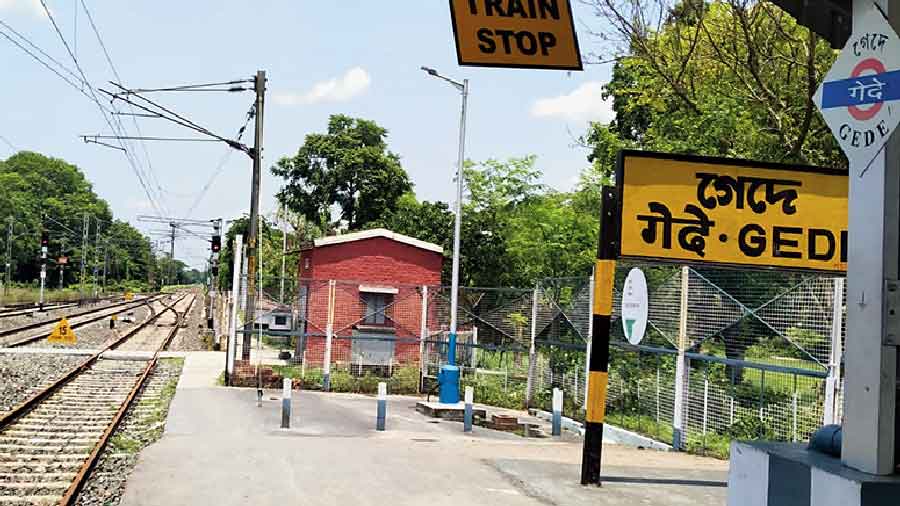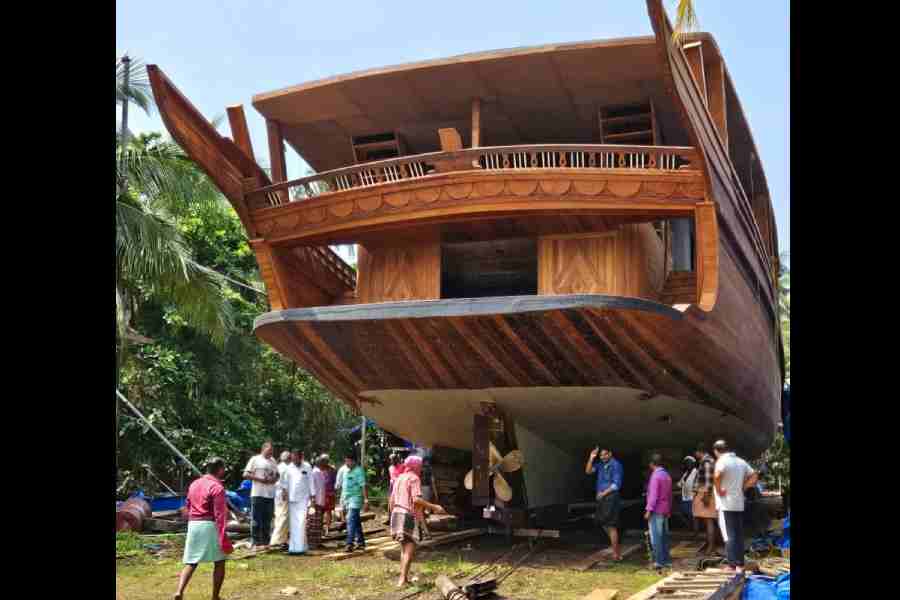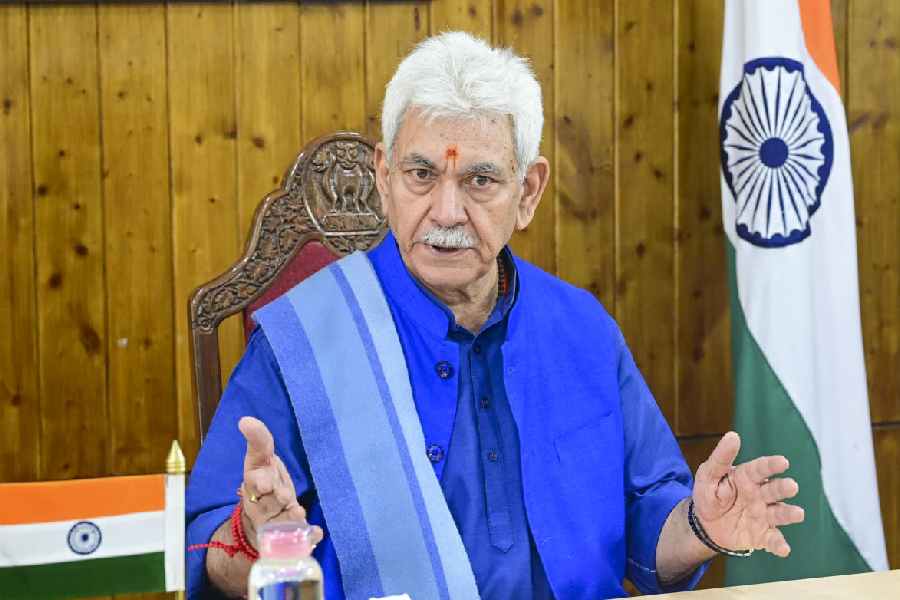An organisation of money exchangers at Gede in Nadia district have threatened to block the Dhaka-Calcutta Maitree Express on October 29 to protest the Centre’s decision of not issuing tourist visas to Bangladeshi nationals entering through the Darshana-Gede border on foot.
The first-of-its-kind call for protest, a source said, is aimed at drawing New Delhi’s attention to the plight of people, especially those working in money exchange, following the closure of the international border because of the Covid pandemic on March 23, 2020.
“The land ports across Bengal were thrown open in September last year, but those willing to walk into India crossing the Darshana-Gede border are not being given tourist visa. The decision is causing tremendous hardships to local people, especially those working as money exchangers,” said Dianabandhu Mahaldar, who owns a money exchange company in Gede, and the president of Gede Land Port Society, an organisation of money exchangers and local traders.
According to him, at times, the authorities are issuing medical or student visa to Bangladeshis on a case-by-case basis, but the selective approach has significantly reduced volume of traffic along the border.
“We had a miserable time during the pandemic, but we waited with patience. Now that the borders have been thrown open and Bangladeshis can walk-in to India through other borders, we don't know why the Ministry of External Affairs is not allowing people to walk-in through Darshana-Gede border. Disrupting the Maitree Express service is the only option left before us to draw the attention of the Government of India,” added Mahaldar.
A source in Malda said the same problem is also being felt in Mahadipur land port in the district, which has Chapai Nawabgang on the other side.
In the pre-Covid days, around 2,500 to 3,000 Bangladeshis used to enter India on foot using the Darshana-Gede border. The influx of foreign tourists had a positive impact on the local economy, especially the money exchangers as they used to do brisk business.
“Our central government's selective approach has caused tremendous hardships for thousands of people... The blockade of the railway track is the last resort for us,” said another local trader.
Members of the Gede Land Port Society had earlier sent a letter to the foreign minister S. Jaishankar to allow visas to Bangladeshi through the Gede land port. The Federation of Associations of Small Industries of India (FASII) had also sent an appeal to Meenakshi Lekhi, junior foreign minister, last month urging her to allow Bangladeshi nationals to India through Gede.
"But while the centre is issuing visa to people entering India by travelling on Maitree Express, our request to allow people cross the border on foot has drawn a blank," said Mahaldar.
A member of the Gede Land Port Society said that most Bangladeshis prefer the Gede route since reaching Calcutta from the Nadia border is cheap as one can travel to the city in a local train by buying a Rs 30 ticket.
“We have shown enough patience during the past two years. Disrupting Maitree Express service is the only option left before us to draw the attention of the Government of India”, Mahaldar.
Sources said that Bangladeshi counterparts of the Indian money exchanger have also begun a movement on the other side of the border demanding issue of visas.
Apart from Petrapole land port in North 24 Parganas, Gede check post has always been the cheapest passage for people of at least 15 neighbouring Bangladeshi districts to enter India.
With the Darshana-Gede border being out of bounds, the Petrapole land port has become the lone option for Bangladeshis, which is causing a huge rush and long waiting time at the immigration clearance.
A Bangladeshi National from Chuadanga, while waiting at the immigration counter at Petrapole, on Thursday said, “I had to travel over 100 km to reach Benapole to enter India through Petrapole. It is so difficult for ordinary people like us."
FASII’s Executive Secretary S.Pandiraj said, “The government should issue visas to the Bangladeshi people to enter India through Gede as it has always been done since the Independence. So many people used to enter India every day through Gede for business, tourism, and medical purposes, which facilitated trade and commerce between the two countries, and the micro and small enterprises used to benefit from the cross-border movement."









